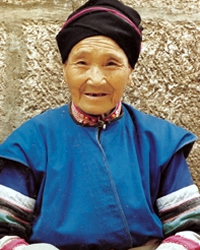Katso in China

Photo Source:
Copyrighted © 2026
Operation China, Asia Harvest All rights reserved. Used with permission |
Send Joshua Project a map of this people group.
|
| People Name: | Katso |
| Country: | China |
| 10/40 Window: | Yes |
| Population: | 8,200 |
| World Population: | 8,200 |
| Primary Language: | Katso |
| Primary Religion: | Ethnic Religions |
| Christian Adherents: | 0.05 % |
| Evangelicals: | 0.05 % |
| Scripture: | Translation Needed |
| Ministry Resources: | No |
| Jesus Film: | No |
| Audio Recordings: | No |
| People Cluster: | Mongolian |
| Affinity Bloc: | East Asian Peoples |
| Progress Level: |
|
Introduction / History
The Katso are a distinct people group. They deliberately separate themselves and refuse to intermarry with people from other nationalities. Despite having been cut off from their homeland for seven centuries, the Katso proudly retain their ethnic identity as Mongols.
The Mongolian empire gained control over southwest China in 1252 when they overthrew the ancient Nanzhao Kingdom in Dali. They ruled Yunnan for 129 years, extracting annual taxes and tribute which were sent north to fill the coffers of the Yuan Dynasty rulers. In 1381, "Ming Dynasty troops routed the Yuan army by the shore of the Baishi River. The Mongol soldiers, their hopes to return to their homeland having been dashed, had no alternative but to settle down in the province." Their ancestors now live around Jihulu Lake.
What Are Their Lives Like?
The Katso women's dress is said to resemble the uniform of the original Mongol soldiers. During the hotter part of the year, they wear cloth instead of fur and cut off the sleeves.
In the early 1980s, village elders sent a delegation to Inner Mongolia to learn about Mongolian culture. They immediately adopted customs similar to Mongols in the north. Wrestling became their favorite sport when they saw how popular it was with other Mongols.
What Are Their Beliefs?
The religion of the Katso is a mixture of Buddhism and Daoism. Posters of fierce Daoist deities hang on the doors and gates of their homes to ward off evil spirits. A few Mongol families are Muslims. They were converted to Islam by the neighboring Hui community, located near the entrance to the Mongolian village.
There is no Christian church among the Katso. The few efforts to take the gospel to them have been met with stubborn resistance and opposition from village leaders and local police who are eager to preserve the Mongolian traditions they had neglected for centuries and who are careful to shun all change to their society. In the 1980s, a Mongolian Christian from northern China visited this village, hoping he would be able to influence the Katso to become Christians. He too was rejected by the locals.
What Are Their Needs?
The Katso people need the spiritual hunger it takes to seek and find Jesus Christ no matter what the cost.
Prayer Points
Pray that God will send culturally-sensitive missionaries who will show them the way to the cross.
Pray for a Disciple Making Movement to flourish among this people group in the near future.
Pray for the Katso people to be blessed with peace, joy and spiritual prosperity as they follow Jesus Christ.